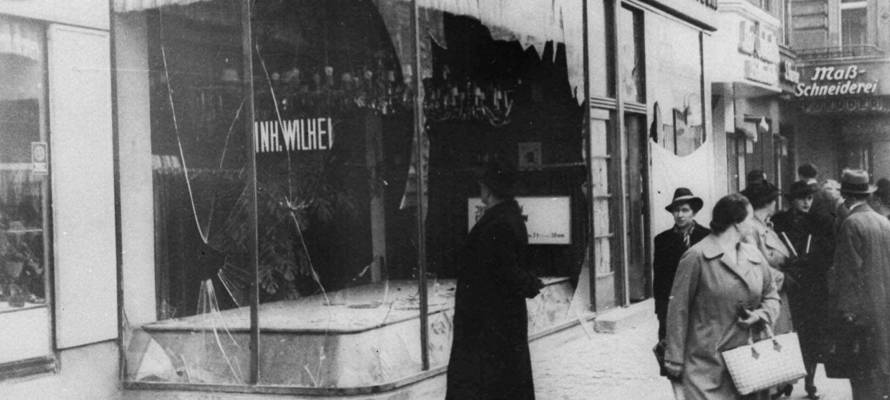German Jewish community head opposes combined remembrance day for ‘Kristallnacht’ and fall of Berlin Wall.
By Sharon Wrobel, The Algemeiner
As Germany marks the anniversary this week of ‘Kristallnacht,’ the head of the Central Council of Jews in the country said he viewed an initiative to commemorate the memory of the atrocities committed by the Nazis in 1938 and the fall of the Berlin Wall in 1989 in one event as “problematic.”
German President Frank-Walter Steinmeier is holding a collective remembrance event on Tuesday titled “1918 – 1938 – 1989: Commemoration of November 9.” In German history, Nov. 9 stands for three incisive dates: the proclamation of the German republic in 1918, the 1938 pogroms targeting Jews, and the fall of the Berlin Wall in 1989.
“I think a day of remembrance that takes into account all historical events on November 9 to be difficult because they are very ambiguous,” Josef Schuster, President of the Central Council of Jews in Germany told the German press agency.
When Schuster was asked about what Nov. 9 meant to him, he responded: “Nov. 9 is the day when the synagogues were devastated in 1938, when more than half of the synagogues in Germany and Austria burned and thousands of Jews were deported to concentration camps. This is what this day stands for me above all, even if it is of course connected with the fall of the Berlin Wall.”
“But I fear that the majority of the population will not be able to do much with Nov. 9, 1938, spontaneously,” he added.
“This day in 1938 had a very serious negative impact on at least part of the German population: there was a danger to life and limb, deportations took place, even murders. On the other hand, there is the clearly joyful occasion of the fall of the Berlin Wall in November 1989. I think a single National Day of Remembrance for all these different events is problematic,” Schuster remarked.
Last year, a commission examining “30 Years of German unity” had proposed the National Day of Remembrance.
Steinmeier described the historical date as a “day of contradictions, a day of light and a day of darkness” that stands for the ambivalence of memory.
At the remembrance event of Nov. 9, the youngest member of the 20th German Bundestag, Emilia Fester will shed light on 1918; the German Jewish Holocaust survivor Margot Friedländer, who celebrated her 100th birthday on Friday will talk about the Reichspogromnacht in 1938, and the civil rights activist and former head of the Stasi files agency Roland Jahn will speak about what happened in 1989.
Outgoing Chancellor Angela Merkel is also expected to attend the commemoration event hosted by Steinmeier at the Bellevue Palace, the president’s official residence.
